Norwegian Family Uncovers 1,200-Year-Old Viking Artifact in their Yard
A family living on a quiet Norwegian island recently came across a 1,200-year-old Viking artifact after using a metal detector in their yard to find a lost earring.
The family’s search for a simple piece of jewelry led them to discover fascinating artifacts buried beneath the grass of their own yard. Researchers believe this find has the potential to significantly enhance our understanding of the customs of Scandinavians during the Viking Age.
Archaeological Discoveries Made by the Public
Despite archaeologists’ best efforts to unearth the treasures of the past throughout the tedious and meticulous excavation process, they can’t always strike gold.
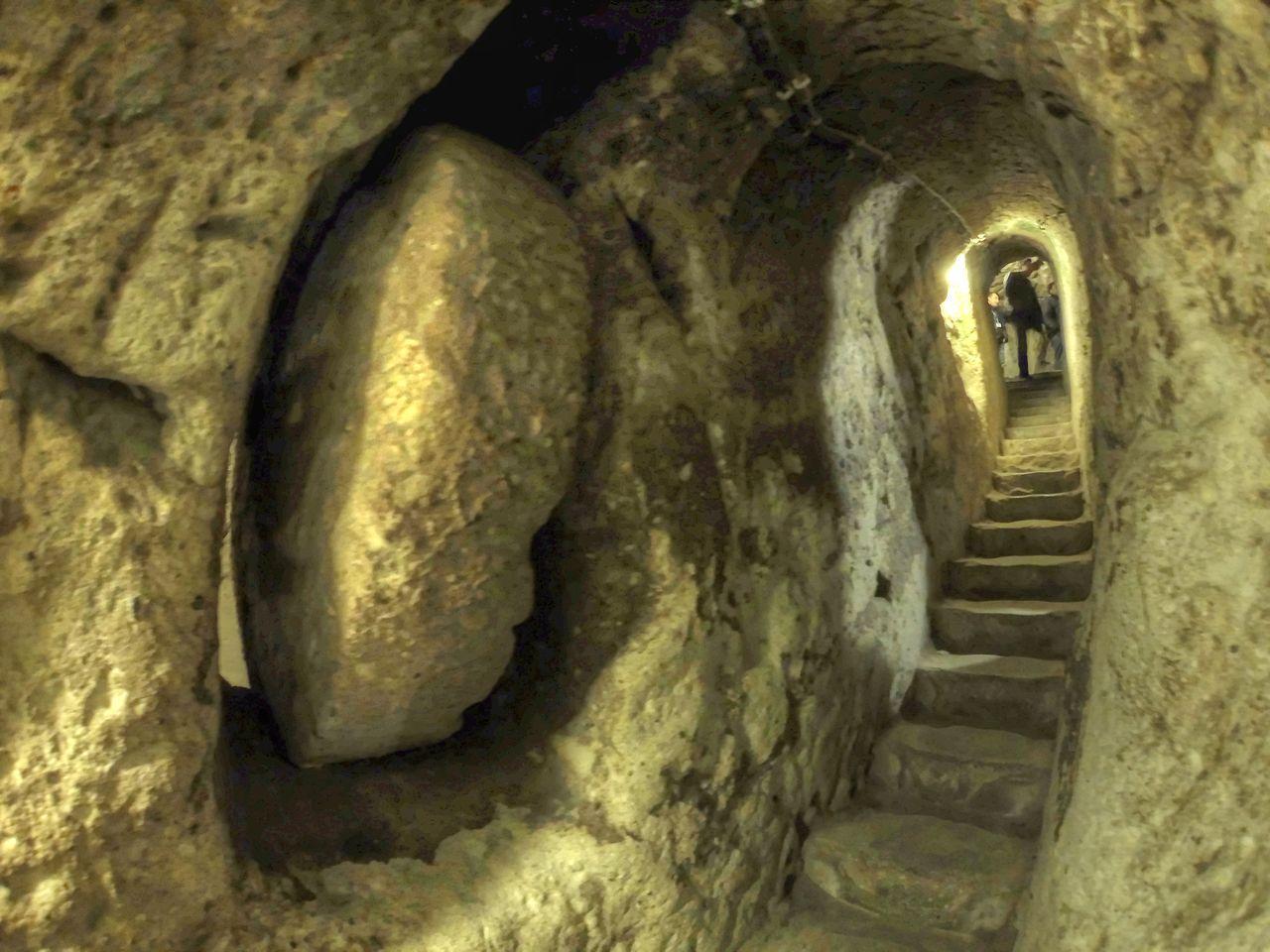
Source: Wikimedia
More often than not, some of the greatest archaeological discoveries of the era come unexpectedly as members of the public stumble upon an artifact or site during their everyday lives. One such example is the underground city of Derinkuyu, which was discovered by a Turkish man who was simply renovating his home.
Family’s Search for an Earring Leads to Fascinating Discovery
A similar event recently occurred on the Norwegian island of Jomfruland after members of the Aasvik family began frantically searching their yard for a missing golden earring.
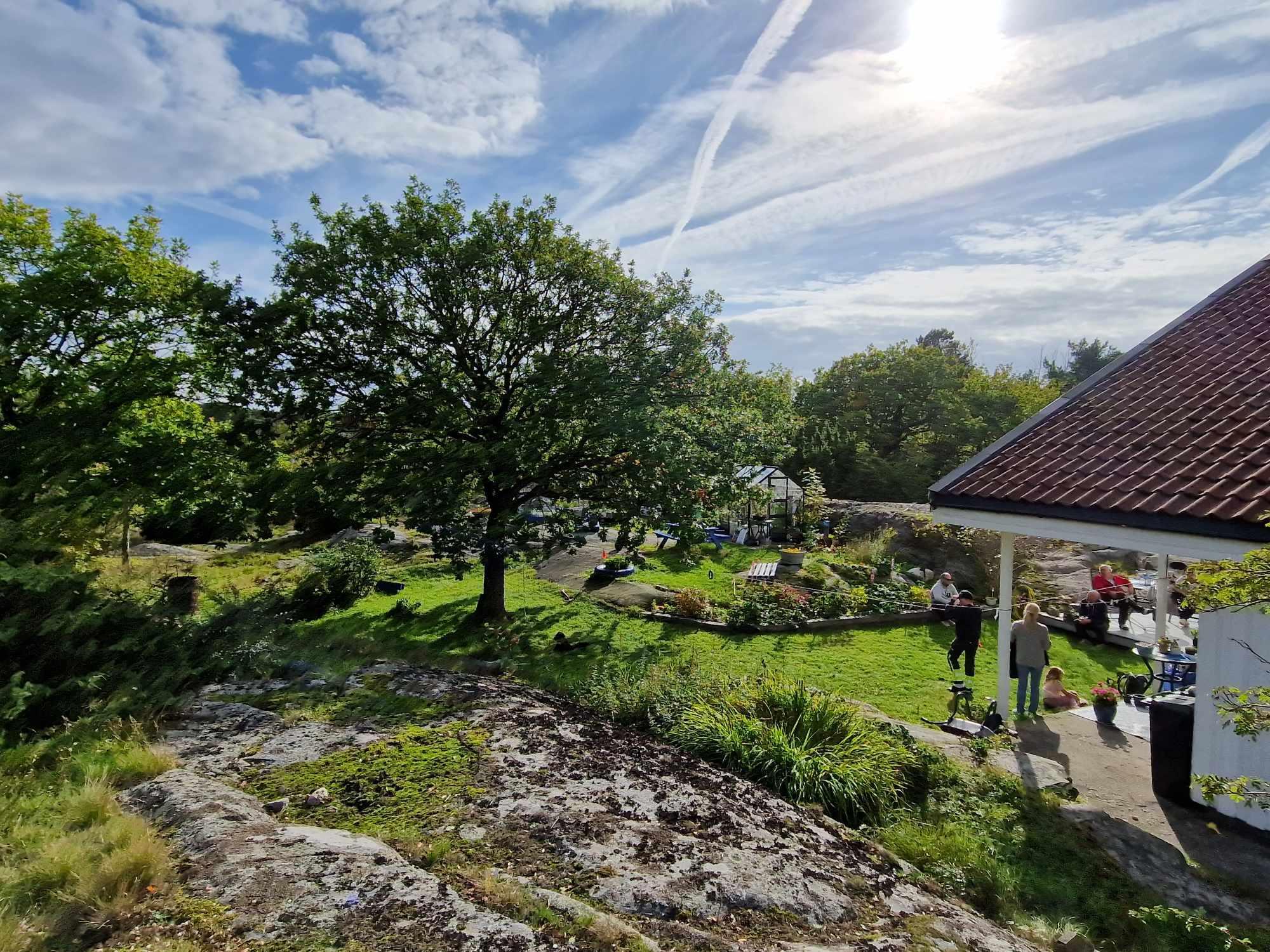
Source: Vestfold and Telemark County Council/Facebook
As they scoured the back garden using a metal detector, the device began ringing, yet no earring could be found. After digging up a small portion of the yard, they discovered two metal items that were later dated to the Viking Age, per The Smithsonian.
Two Viking Era Bronze Brooches Unearthed in Norway
The family quickly noticed the significance of the find and contacted the authorities, who later sent archaeologists to examine it.
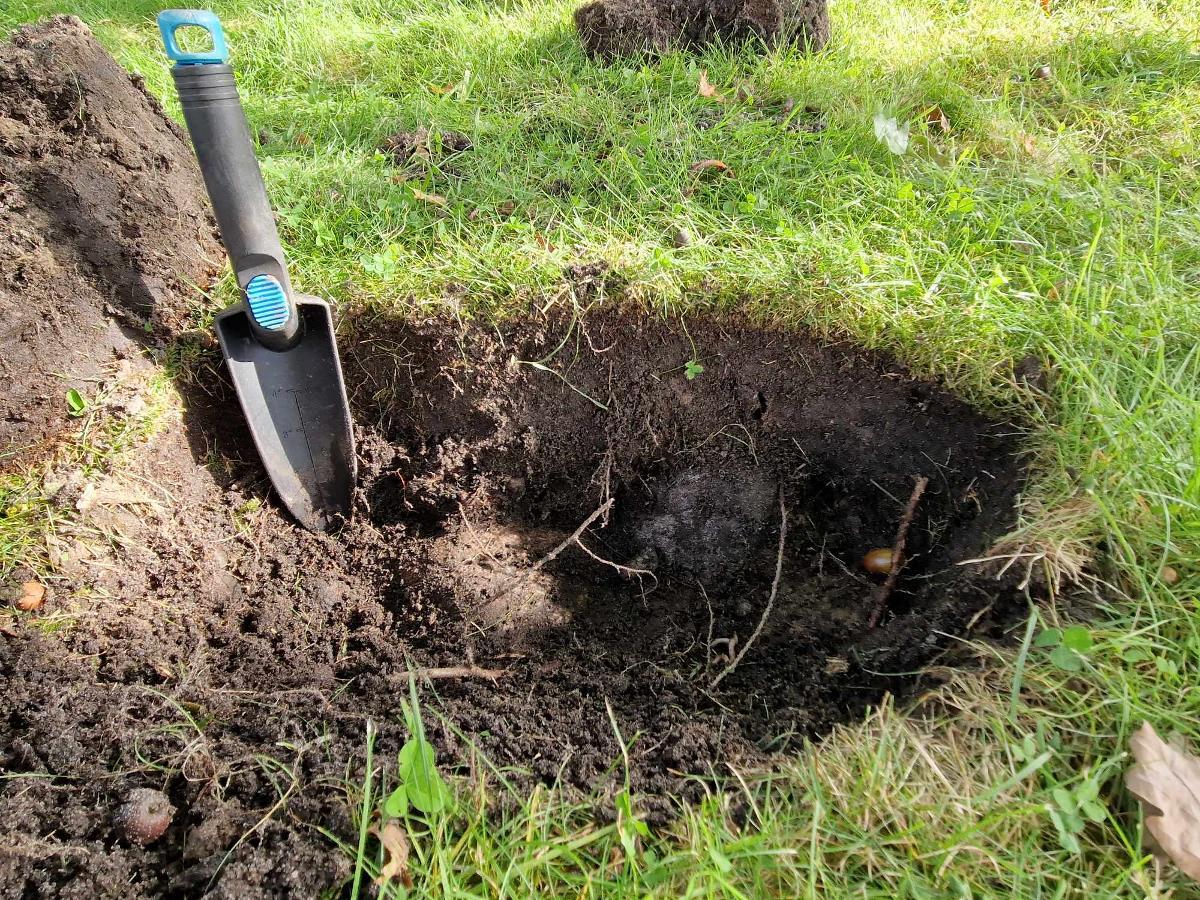
Source: Vestfold and Telemark County Council/Facebook
Researchers detailed the discovery, explaining that the family had unearthed two bronze brooches, likely used by ancient Scandinavians to fasten the straps of a woman’s dress.
Archaeologists Inspect the Brooches
Researchers detailed the two brooches and explained one is a larger oval-shaped object, while the other is smaller and of a circular shape.
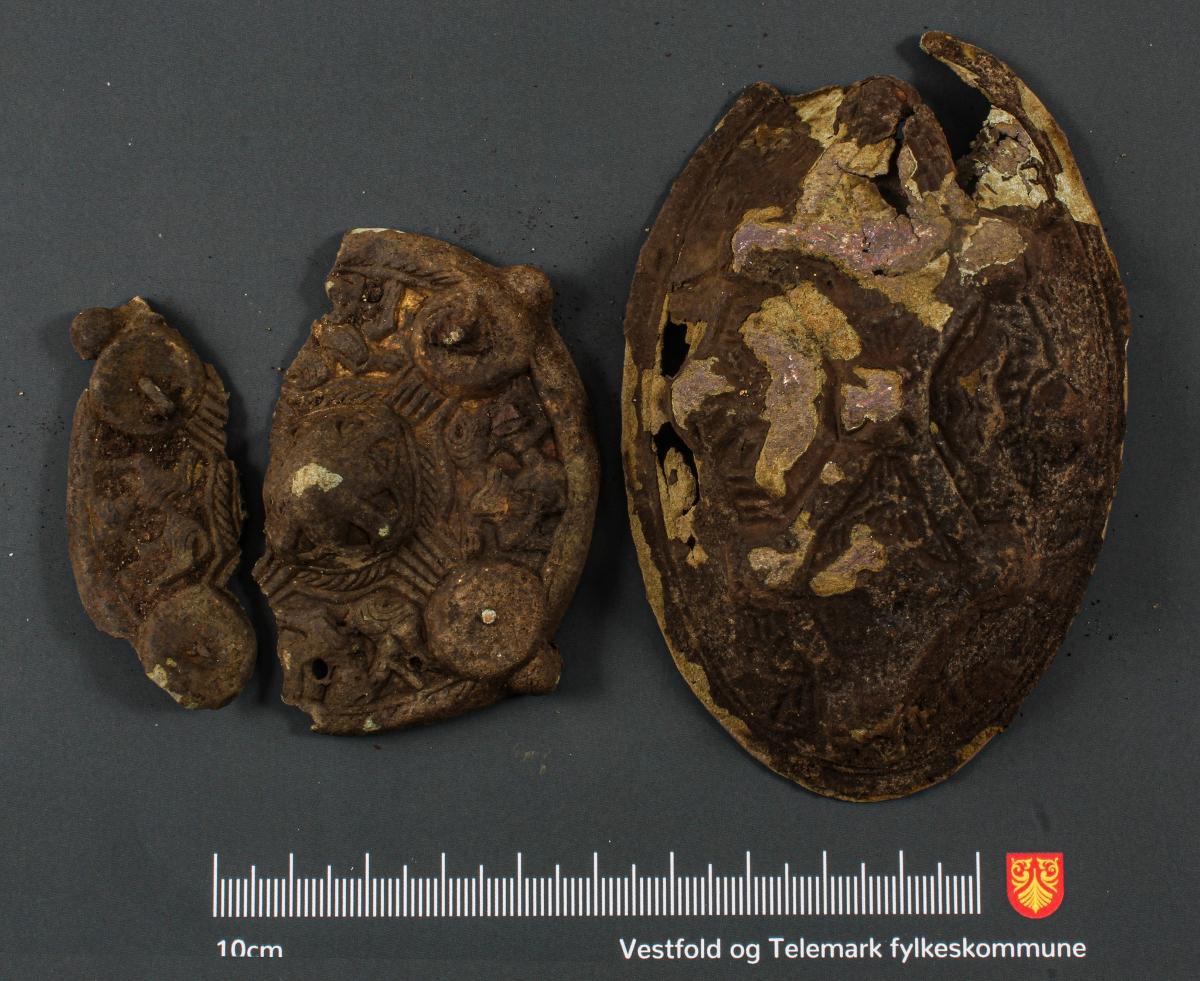
Source: Vestfold and Telemark County Council/Facebook
Both are intricately decorated with elaborate depictions of geometric patterns and animals. Researchers theorize they may have once been covered with gold, as a minor trace of the rare metal was noted on both artifacts.
Evidence of a Viking Burial in the Region
Archaeologists, excited by the discovery, began theorizing about the possibility of a Viking burial on the island. They suggest the remains of an aristocratic woman may lie somewhere close to where the brooches were found.
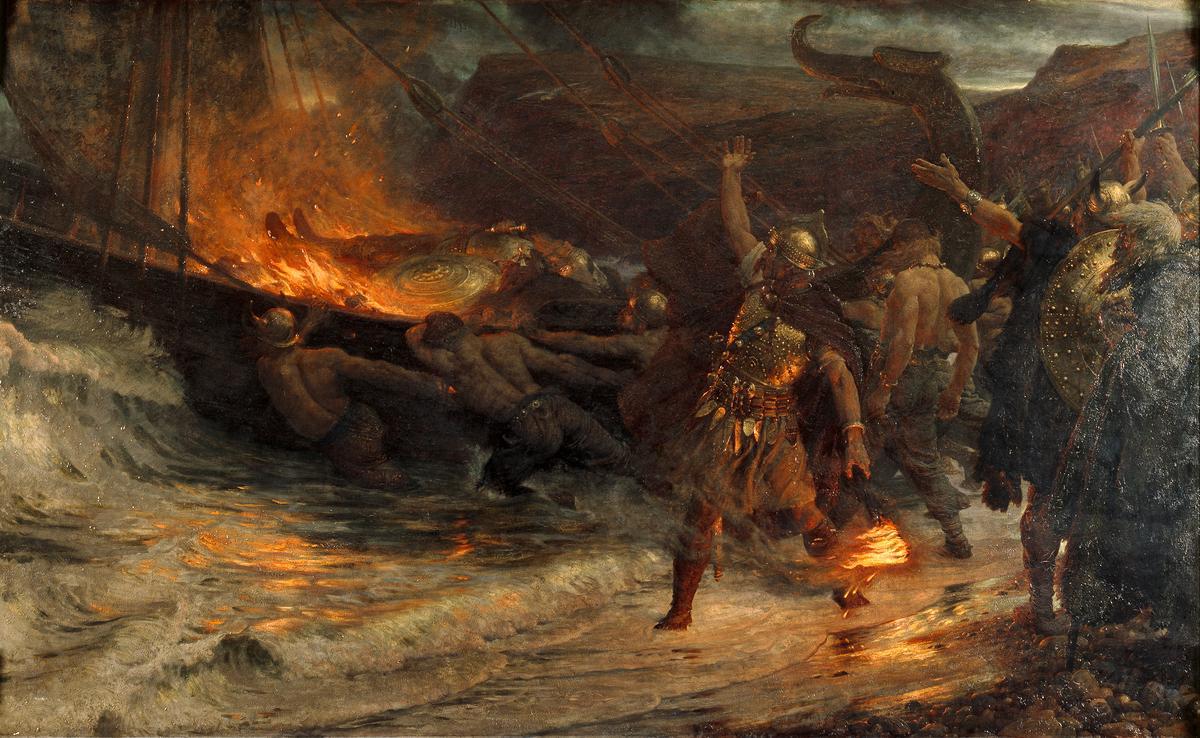
Source: Wikimedia
“A Viking grave right under the turf!” wrote the Vestfold and Telemark County Council’s cultural heritage office on Facebook, translated via Google Translate.
Vikings on the Island of Jomfruland
The discovery of the unique brooches has led researchers to conclude once and for all that Vikings did inhabit the small Norwegian island in ancient times.
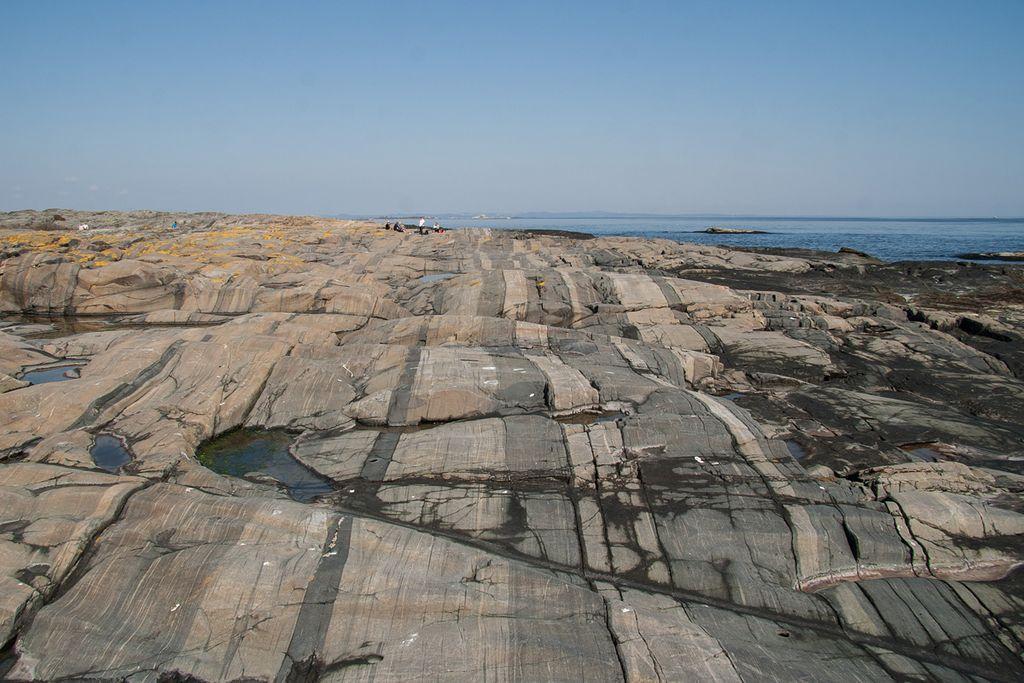
Source: Wikimedia
Previous to the find, researchers had suspected a Viking presence on the island due to several piles of loose rocks known as cairns. However, as the record only goes back to the Middle Ages, they couldn’t say with certainty that ancient Scandinavians lived here.
Brooches Found in Great Condition
Speaking on the condition of the brooches, Vibeke Lia, an archaeologist with the Vestfold and Telemark County Council, said they were in “pretty good condition compared to most metal-detecting finds we get.”

Source: Wikimedia
One reason for their excellent state of preservation is that the land surrounding the family home was never used for farming. So, as it wasn’t plowed, they remained safe beneath the layers of soil.
What Happens Next at the Site?
Authorities explained that the site may be excavated in the near future. However, for now, “the next step is to assess whether this site is in danger of deterioration,” said Lia.
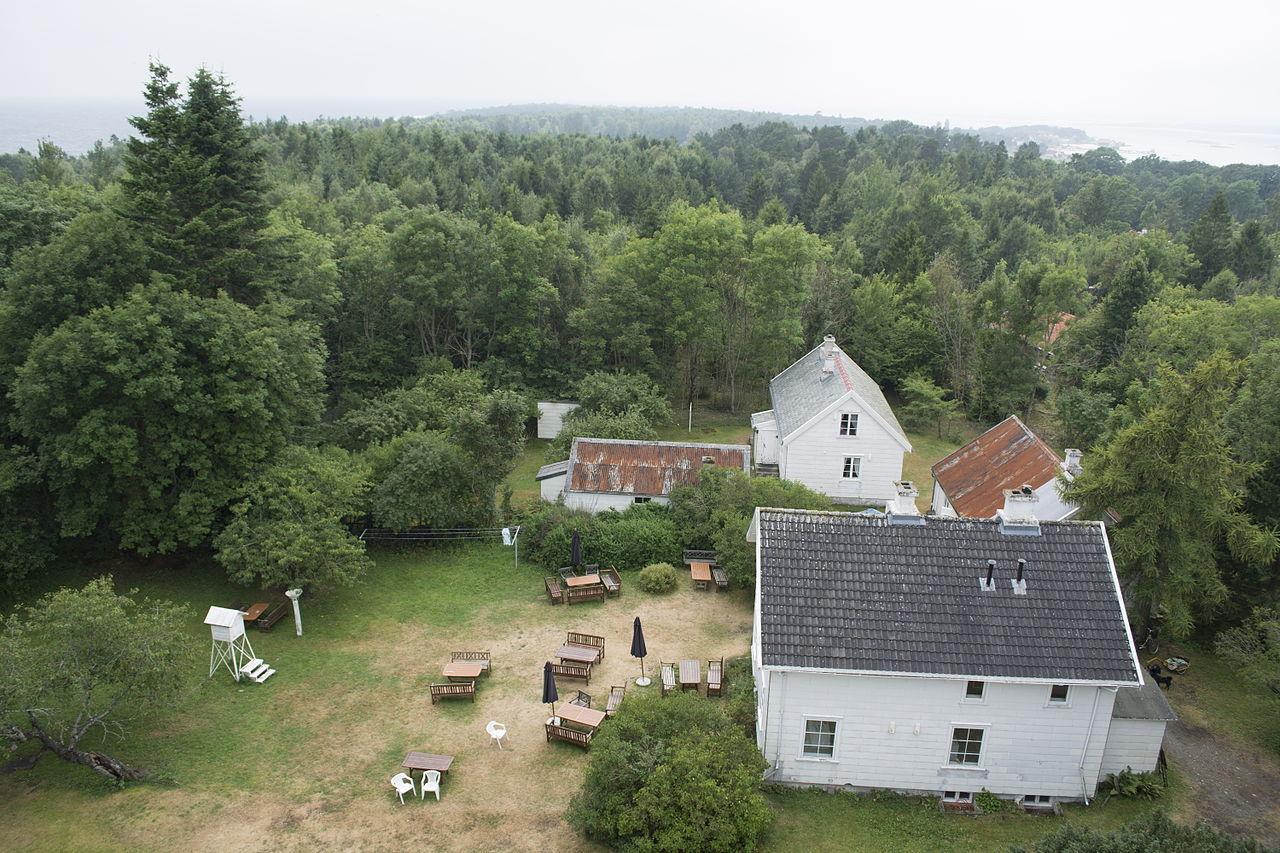
Source: Wikimedia
They continued, “If it’s safe there, then it will probably not be dug but preserved where it is.” Despite the hope of a Viking burial, no such remains have been discovered yet.
1,500-Year-Old Gold Jewelry
Metal detectorists have played an integral role in unearthing fascinating artifacts in recent years. Shortly after the discovery of the brooches in 2023, a remarkable find was unearthed by another member of the public.
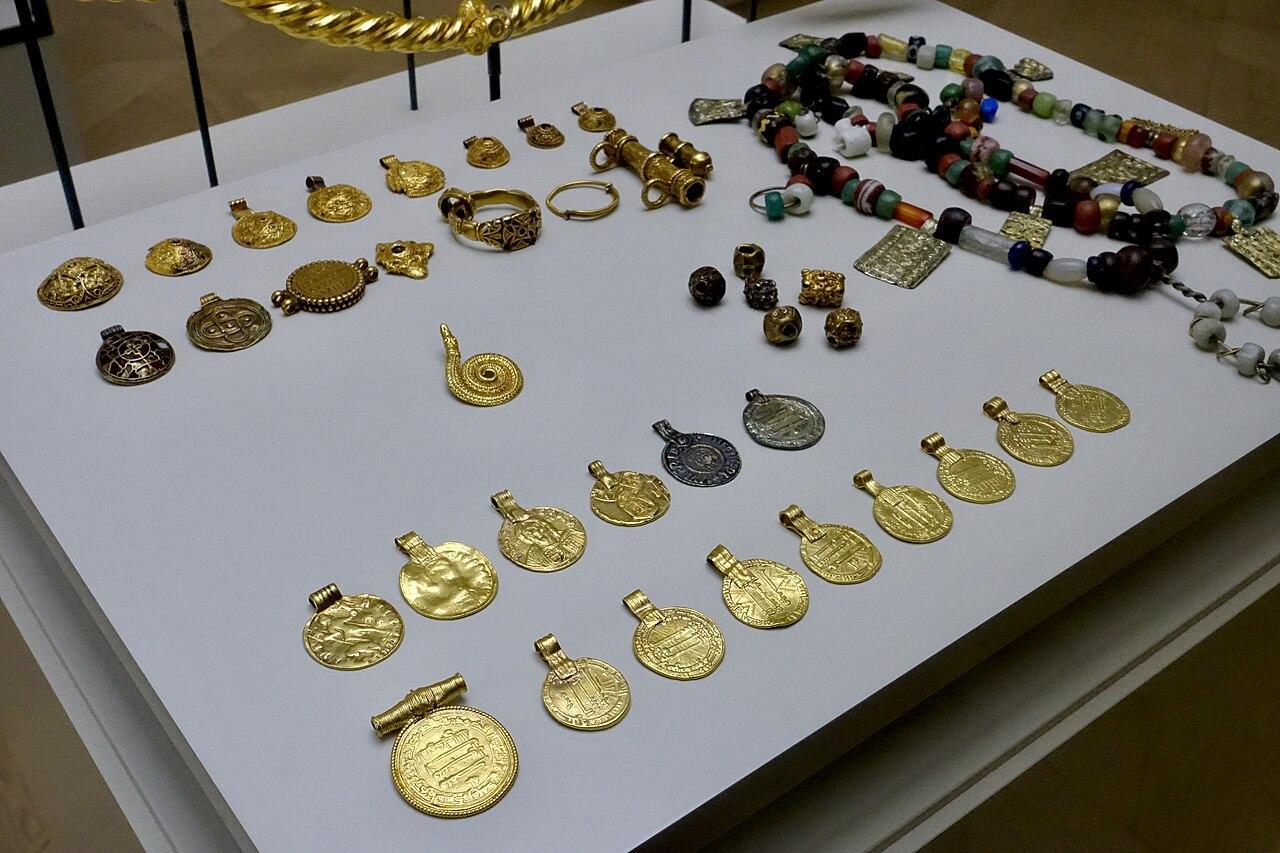
Source: Wikimedia
Erlend Bore was scouring the island of Rennesøy with her metal detector when she came across a hoard of gold jewelry dating back over 1,500 years.
Medieval Disc Brooch Found in Somerset
Several years before the discovery of brooches, a metal detectorist in Somerset, England, came across a Medieval-era disc brooch inscribed with designs similar to those of the Jomfruland example.
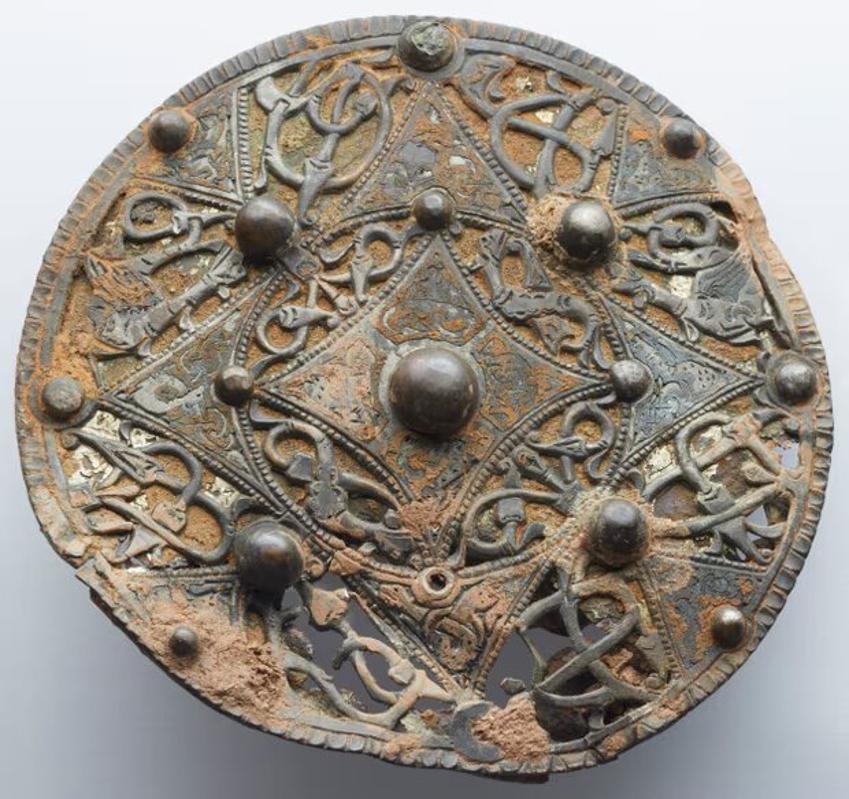
Source: Museum of Somerset
The artifact was later displayed at the Museum of Somerset and underscores the connection between the Germanic-speaking groups of Scandinavia and those who later settled in the British Isles.
Investigating the Viking Presence on Jomfruland
The remarkable discovery of the brooch on Jomfruland has played a significant role in the understanding of Viking settlements during the Viking era.
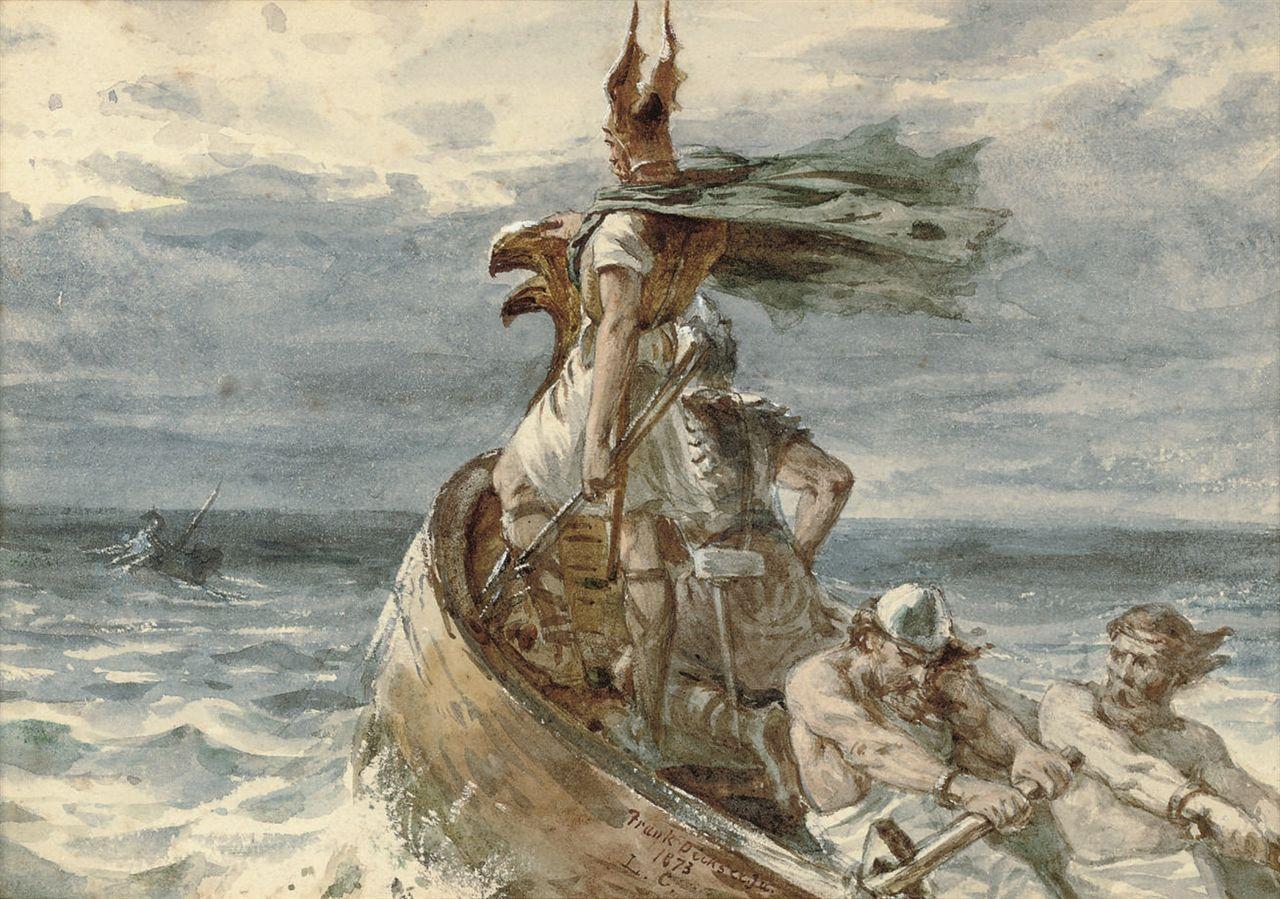
Source: Wikimedia
Further excavations in the region may produce items of a similar nature and quite possibly a burial, which would further expand our knowledge of the region and may even provide us with answers as to when the Vikings originally settled the island.
